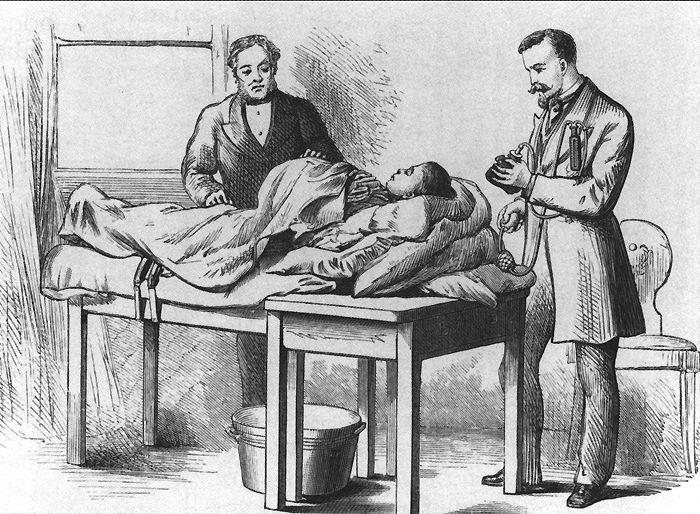"Grit your teeth and think of England, dear."
From a new scholarly paper, a reminder just how stupid life can be. Alas, we only catch it in retrospect:
J Anesth Hist. 2015 Oct;1(4):115-21. doi: 10.1016/j.janh.2015.07.027. Epub 2015 Aug 8.
Accepting Pain Over Comfort: Resistance to the Use of Anesthesia in the Mid-19th Century.
Meyer R1, Desai SP2.
Abstract
News of the successful use of ether anesthesia on October 16, 1846, spread rapidly through the world. Considered one of the greatest medical discoveries, this triumph over man's cardinal symptom, the symptom most likely to persuade patients to seek medical attention, was praised by physicians and patients alike. Incredibly, this option was not accepted by all, and opposition to the use of anesthesia persisted among some sections of society decades after its introduction. We examine the social and medical factors underlying this resistance. At least seven major objections to the newly introduced anesthetic agents were raised by physicians and patients. Complications of anesthesia, including death, were reported in the press, and many avoided anesthesia to minimize the considerable risk associated with surgery. Modesty prevented female patients from seeking unconsciousness during surgery, where many men would be present. Biblical passages stating that women would bear children in pain were used to discourage them from seeking analgesia during labor. Some medical practitioners believed that pain was beneficial to satisfactory progression of labor and recovery from surgery. Others felt that patient advocacy and participation in decision making during surgery would be lost under the influence of anesthesia. Early recreational use of nitrous oxide and ether, commercialization with patenting of Letheon, and the fighting for credit for the discovery of anesthesia suggested unprofessional behavior and smacked of quackery. Lastly, in certain geographical areas, notably Philadelphia, physicians resisted this Boston-based medical advance, citing unprofessional behavior and profit seeking. Although it appears inconceivable that such a major medical advance would face opposition, a historical examination reveals several logical grounds for the initial societal and medical skepticism.

No comments:
Post a Comment